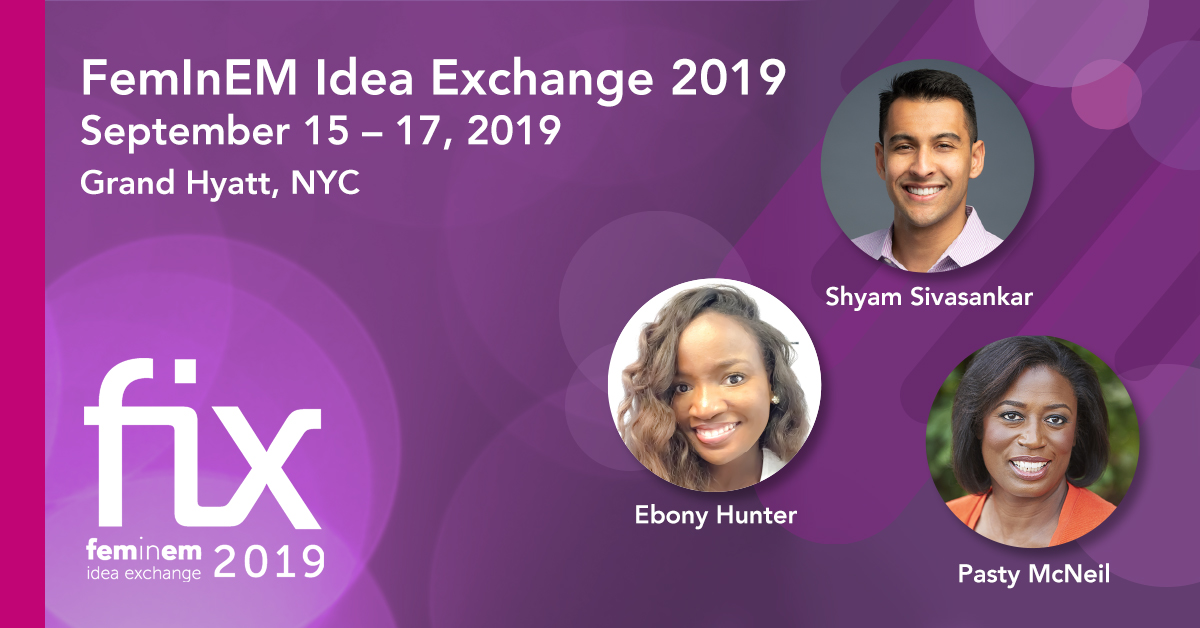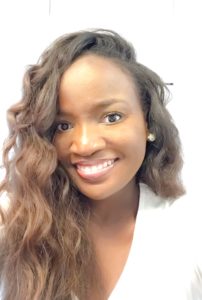The Journey to Otherhood – with Dr. Ebony Hunter – FIX 19 preview
Not every woman chooses to become a mother. And that’s okay. USACS physician Ebony Hunter and Dina Wallin, MD, hope to hit the ‘reset’ button on the implications of childbearing and the stigma of not during their FIX 19 talk.
US Acute Care Solutions is a sponsor of FemInEm’s Idea Exchange 2019 (FIX), a two-day event featuring – among other standard conference fare – 32 TED-style talks from women and men in Emergency Medicine.
Four of the physicians are affiliated with USACS, so we interviewed several to offer a Q&A preview of their talks.
Ebony Hunter is a native of Louisiana, and one of eight children in a very close-knit family. She participated in USACS’ Scholars Academy and is active on the USACS Diversity and Inclusion Committee. She has board certifications in Pediatrics and Pediatric Emergency Medicine, and also is seeking board status is Medical Informatics. She works PRN for US Acute Care Solutions at Florida Hospital in Tampa and locum for Our Lady of the Lake Regional Medical Center in Baton Rouge, LA., and Johns Hopkins All Children’s Hospital in St. Petersburg, FL.
Tell us about the talk you’re preparing.
The name of the talk is “The Journey to Otherhood” and a colleague, Dina Wallin, MD, and I will be co-presenting. It will focus on a subset of professionals who are NOT parents. While we will be discussing quite a few different subtopics regarding this group of professionals, the overall arching theme will be recognizing the value in this often-overlooked population of the workforce.
Why is it important to you to speak at the Feminem idea exchange?
FeminEM is a great platform to discuss traditional and nontraditional ideals as it relates to professional medical women. When considering advancement, there is a lot of conscious and unconscious adaptation that occurs. It is well-documented that women have to adapt more so that our male colleagues. That being said, it’s important to regain sight of what is truly normal verses a perceived normal by the environment we are in. Telling a room full of women “Hey, 1 in 5 of you don’t have children and 100% of you didn’t have children at some point of your life and it’s okay” is like helping hit a reset button on the implications of childbearing and the stigma of not. Expectations adjust whether you have children or not but some of those professional expectations should not. Women and men need to hear it.
 Have you attended the conference before? What did you gain from it?
Have you attended the conference before? What did you gain from it?
I attended the conference in 2018. It was my first time at the conference and I was a USACS ambassador at that time. It was a great opportunity to see the perspective of others, especially women and be empowered. We all need a burst of inspiration from time to time. To have such a vast network of intelligence that goes well beyond gender norms was rejuvenating.
What are some of the reasons you become a physician?
I always tell people that being a physician chose me. I was lucky in that aspect as I didn’t have to think hard about it. It was a passion I had since childhood and I held on to it. I had amazing parents who motivated and steered me to pursue medicine once they realized my intentions. And while they encouraged me to always consider other options, as I continued to voice my desire for this, they supported me 100%. It’s such a great field to be able to dedicate your life to helping other be their best self through the art of healing.
What are some issues that you are passionate about?
There are so many but if I had to list my top issue it would be diversity and inclusion. It’s all encompassing and if you truly practice inclusivity other issues such as mental health, addiction, education, social disparities and injustices, equal pay, women’s rights, etc. will fall in line. My parents pushed this before this was even a “thing.” We have such a diverse family that it was something that was natural in our home which meant it was even more natural for me to be drawn to this in my career. As I’ve progressed upon my current trajectory, I’ve had to opportunity to meet so many people. I didn’t just get the chance to meet them, I allowed myself to appreciate them, whoever they were. You can learn a lot about yourself and others when you find the similarities in your differences and differences in your similarities. Listening to the perspective of others, whether you agree or not, and then taking a it a step further to empathize from that perspective helps solve a lot of problems.


 Have you attended the conference before? What did you gain from it?
Have you attended the conference before? What did you gain from it?